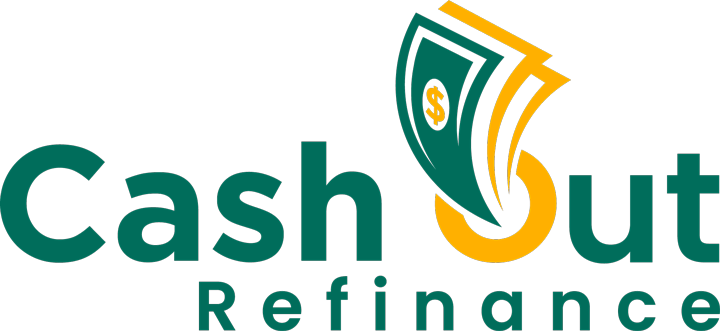HELOC vs. Home Equity Loan: Understanding the Best Option for Your Needs
Homeowners who want to tap into their home’s equity have two popular options: a Home Equity Line of Credit (HELOC) or a Home Equity Loan. Both options allow you to access cash based on the equity in your home, but they work in different ways and are best suited for different financial needs.
In this guide, we will cover:
✅ What is a HELOC?
✅ What is a Home Equity Loan?
✅ Key Differences Between a HELOC and Home Equity Loan
✅ Pros & Cons of Each Loan Type
✅ How to Qualify for a HELOC or Home Equity Loan
✅ Best Uses for HELOCs and Home Equity Loans
✅ Frequently Asked Questions (FAQs)
By the end, you’ll have a clear understanding of which option is best for you and how to use home equity wisely.
What is a Home Equity Line of Credit (HELOC)?
A Home Equity Line of Credit (HELOC) is a revolving line of credit that allows homeowners to borrow against their home equity as needed.
💡 How a HELOC Works:
- Borrowers are given a credit limit based on their home’s equity.
- Funds can be drawn as needed, similar to a credit card.
- Interest is only charged on the amount used, not the full credit line.
- Typically, there is a draw period (5-10 years) where you can borrow and only pay interest.
- After the draw period, a repayment period (10-20 years) begins, where both principal and interest are paid.
✔ Example of a HELOC in Action:
- Home Value: $400,000
- Existing Mortgage Balance: $200,000
- 80% LTV Loan Limit: $320,000
- HELOC Credit Limit: $120,000 (Loan Limit – Mortgage Balance)
With a $120,000 credit limit, the homeowner can borrow and repay flexibly during the draw period.
What is a Home Equity Loan?
A Home Equity Loan is a lump-sum loan that allows homeowners to borrow against their home equity at a fixed interest rate.
💡 How a Home Equity Loan Works:
- Homeowners receive a one-time lump sum at a fixed interest rate.
- Monthly payments are fixed over a set term (usually 5-30 years).
- Borrowers repay both principal and interest from the start.
✔ Example of a Home Equity Loan in Action:
- Home Value: $400,000
- Existing Mortgage Balance: $200,000
- 80% LTV Loan Limit: $320,000
- Available Equity Loan Amount: $120,000
The borrower receives $120,000 upfront and repays the loan over a fixed term at a set interest rate.
Key Differences Between a HELOC and Home Equity Loan
| Feature | HELOC | Home Equity Loan |
|---|---|---|
| Loan Type | Revolving Line of Credit | Lump-Sum Loan |
| Disbursement | Borrow as needed | One-time lump sum |
| Interest Rate | Variable rate | Fixed rate |
| Monthly Payments | Interest-only during draw period, then principal + interest | Fixed monthly payments |
| Repayment Term | 10-20 years (draw + repayment) | 5-30 years |
| Best For | Ongoing expenses (home improvements, medical bills) | Large, one-time expenses (debt consolidation, major purchases) |
💡 HELOCs provide flexibility, while Home Equity Loans offer stability.
Pros & Cons of a HELOC vs. Home Equity Loan
Pros of a HELOC:
✔ Flexible Borrowing – Borrow only what you need, when you need it.
✔ Interest-Only Payments – Lower payments during the draw period.
✔ Lower Initial Costs – No large upfront interest charges.
✔ Use Multiple Times – Once approved, you can borrow multiple times during the draw period.
Cons of a HELOC:
❌ Variable Interest Rates – Monthly payments can fluctuate.
❌ Payment Shock – Payments increase when principal repayment begins.
❌ Risk of Overspending – Easy access to funds may lead to borrowing more than necessary.
Pros of a Home Equity Loan:
✔ Fixed Interest Rate – Predictable monthly payments.
✔ Lump-Sum Payout – Ideal for large one-time expenses.
✔ Easier Budgeting – No surprise increases in monthly payments.
✔ Longer Repayment Periods Available – Terms up to 30 years.
Cons of a Home Equity Loan:
❌ Higher Initial Payments – No interest-only period.
❌ Less Flexibility – Once received, you cannot borrow more without reapplying.
❌ Higher Closing Costs – Similar to a traditional mortgage.
💡 Choose a HELOC for flexibility and a Home Equity Loan for predictability.
How to Qualify for a HELOC or Home Equity Loan
Lenders have similar qualification requirements for both loan types.
General Requirements:
✔ Minimum Credit Score: 620+ (700+ for best rates).
✔ Debt-to-Income (DTI) Ratio: Below 43%-50%.
✔ Home Equity Requirement: At least 15%-20% equity in the home.
✔ Stable Income & Employment History.
✔ Lender Appraisal of Home Value.
💡 A strong credit score and low DTI increase loan approval chances.
Best Uses for HELOCs and Home Equity Loans
🏡 Home Improvements & Renovations – Fund remodels that increase property value.
📚 Education Expenses – Cover tuition costs without high-interest student loans.
💳 Debt Consolidation – Pay off high-interest credit card debt.
🚗 Major Purchases – Buy a car, vacation home, or make other significant investments.
📈 Real Estate Investing – Use equity for down payments on rental properties.
🏥 Medical Expenses – Cover unexpected healthcare costs.
🚀 Starting a Business – Fund new business ventures.
💡 Choose a HELOC for ongoing expenses and a Home Equity Loan for large one-time costs.
Frequently Asked Questions (FAQs)
1. Can I get a HELOC and a Home Equity Loan at the same time?
✔ Yes, if you have enough home equity, you can have both a HELOC and a Home Equity Loan.
2. Is a HELOC or Home Equity Loan better for renovations?
✔ A HELOC is better for ongoing projects, while a Home Equity Loan is ideal for large upfront costs.
3. Can I use a HELOC or Home Equity Loan for investment properties?
✔ Some lenders offer investment property HELOCs, but they come with higher rates and stricter terms.
4. What happens if I sell my home while having a HELOC?
✔ The HELOC must be paid off at closing when selling the home.
5. Which has lower interest rates: HELOC or Home Equity Loan?
✔ HELOCs typically start with lower interest rates, but they are variable. Home Equity Loans have fixed rates, which may be higher initially but more stable over time.
💡 Before deciding, compare lenders, check interest rates, and evaluate your long-term financial goals.
✅ Final Thoughts: Which Option is Best for You?
🏡 Choose a HELOC if you:
✔ Need ongoing access to cash.
✔ Want lower initial payments.
✔ Are comfortable with variable interest rates.
💰 Choose a Home Equity Loan if you:
✔ Need a one-time lump sum.
✔ Prefer fixed monthly payments.
✔ Have a specific expense in mind (e.g., debt consolidation).
📲 Ready to Explore Your Options?
Reach out to Robert “Bert” Musser today.
- 🌐 Arizona Clients → AZLoanConsultant.com
- 🌐 Texas Clients → HomeLendingTX.com
- 📞 Call/Text: (702) 372-8728
Whether you’re looking to lower your rate, pull cash from equity, or just explore your options in this changing market—Bert is your refinance partner for 2025.


